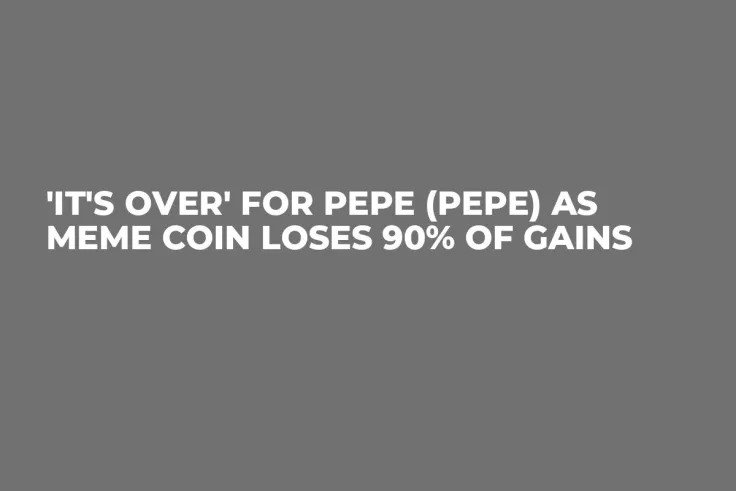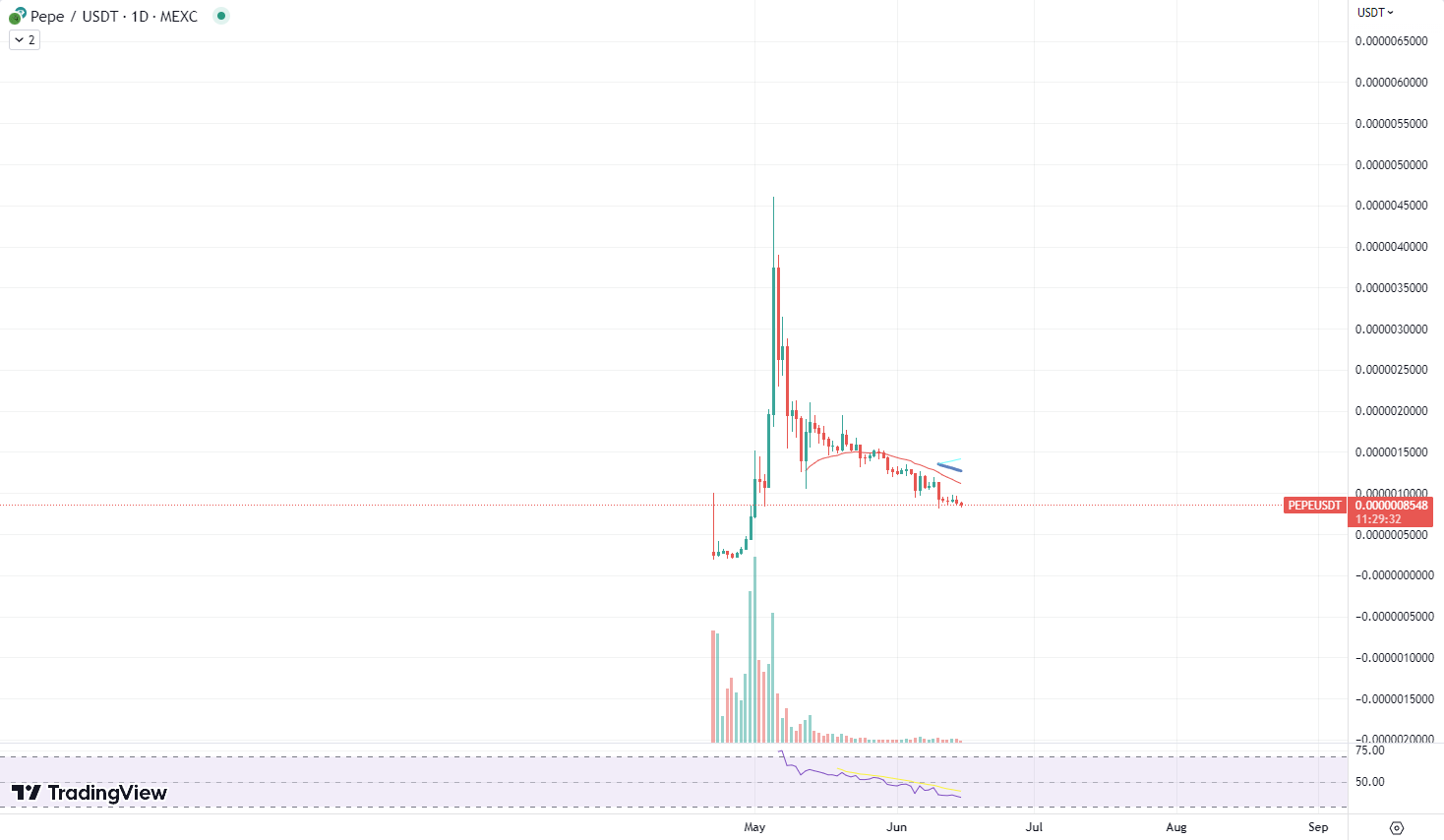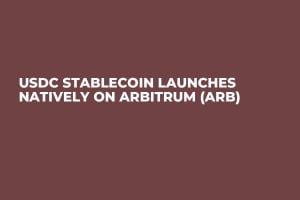
Disclaimer: The opinions expressed by our writers are their own and do not represent the views of U.Today. The financial and market information provided on U.Today is intended for informational purposes only. U.Today is not liable for any financial losses incurred while trading cryptocurrencies. Conduct your own research by contacting financial experts before making any investment decisions. We believe that all content is accurate as of the date of publication, but certain offers mentioned may no longer be available.
Pepe (PEPE), the most popular meme coin of this season, seems to have hit a low point. Over the past few weeks, PEPE has experienced a steep decline, shedding nearly 90% of its gains, pushing it further into oblivion.
The meme coin rally that once drove frenzied buying and catapulted tokens like PEPE into the spotlight seems to have run its course. Unlike other enduring cryptocurrencies, meme coins often suffer from intense volatility and uncertainty, which has played out brutally for PEPE.

The plunge in PEPE's value seems to have been primarily triggered by the actions of a potential insider, who held approximately one trillion PEPE tokens. The sudden sale of this enormous chunk has undeniably catalyzed a sharp downward trajectory, causing an abrupt, severe contraction in PEPE's market value.
With PEPE's value dipping into a seemingly bottomless pit, market analysts predict that the meme coin's journey may be reaching an end, in the same manner that Shiba Inu's path led to prolonged consolidation at the bottom. Market sentiment toward PEPE is increasingly bearish which, coupled with the rapid sell-off, has painted a grim picture for its future prospects.
Cardano's fall accelerates
Cardano (ADA), once lauded as one of the most promising projects in the cryptocurrency space, continues its downward trajectory as the market-wide sell-off deepens. With a further 7.7% price drop today, the digital asset's losses have now extended to a total of 32% over the past seven days. The question on everyone's lips now is: when will this correction stop?
While Cardano's recent performance might seem dismal, it is essential to remember the broader context. The cryptocurrency market has been subject to significant volatility and downward pressure in recent times, largely due to macroeconomic factors and shifting regulatory landscapes.
However, looking strictly at the technicals, the situation appears concerning. ADA's price chart exhibits a consistent downward trend with no signs of a reversal. Key support levels that have previously acted as safety nets during market sell-offs have been decisively broken. This is suggestive of bearish market sentiment, which seems to have infected the ADA market.
Several analysts believe that ADA needs to break out of this downward trend and maintain stability above specific resistance levels to change its current course. The first such level is around the $0.30 mark, a significant psychological barrier. However, for this to happen, there would need to be a significant shift in market sentiment or a groundbreaking announcement from the Cardano team.
However, as it stands, the lack of liquidity, low volume and high volatility all contribute to a challenging environment for ADA. Considering these factors and without the support of broader bullish sentiment on the crypto market, the correction may continue in the short term.
Arbitrum loses traction
As the bear market continues to linger, its impact on Layer 2 (L2) solutions like Arbitrum (ARB) is becoming increasingly evident. With Ethereum gas fees stabilizing back to normal levels, utilization of L2 networks like ARB has seen a notable decline, plummeting their activity to precarious lows.
Arbitrum, a Layer 2 solution built on top of Ethereum to enhance scalability and reduce fees, came to prominence during the bull market phase, when Ethereum gas fees were exorbitantly high. It offered a cost-effective alternative for users by performing transactions off-chain, which could then be batched together and committed to the main Ethereum network, thereby reducing overall gas fees.
However, with the market transitioning into a bearish phase and Ethereum gas fees dropping to more manageable levels, the demand and subsequent usage of L2 networks like ARB have taken a hit. The decline in transaction volume has been dramatic, casting a shadow on the Layer 2 solution's viability in a normalized fee environment.
Despite this bleak outlook, there is potential for recovery. While bear markets may decrease the demand for L2 solutions, their value proposition extends beyond just periods of high gas fees. They hold potential for enhancing the scalability of Ethereum's network, a benefit that remains crucial regardless of market conditions.


 Dan Burgin
Dan Burgin Vladislav Sopov
Vladislav Sopov